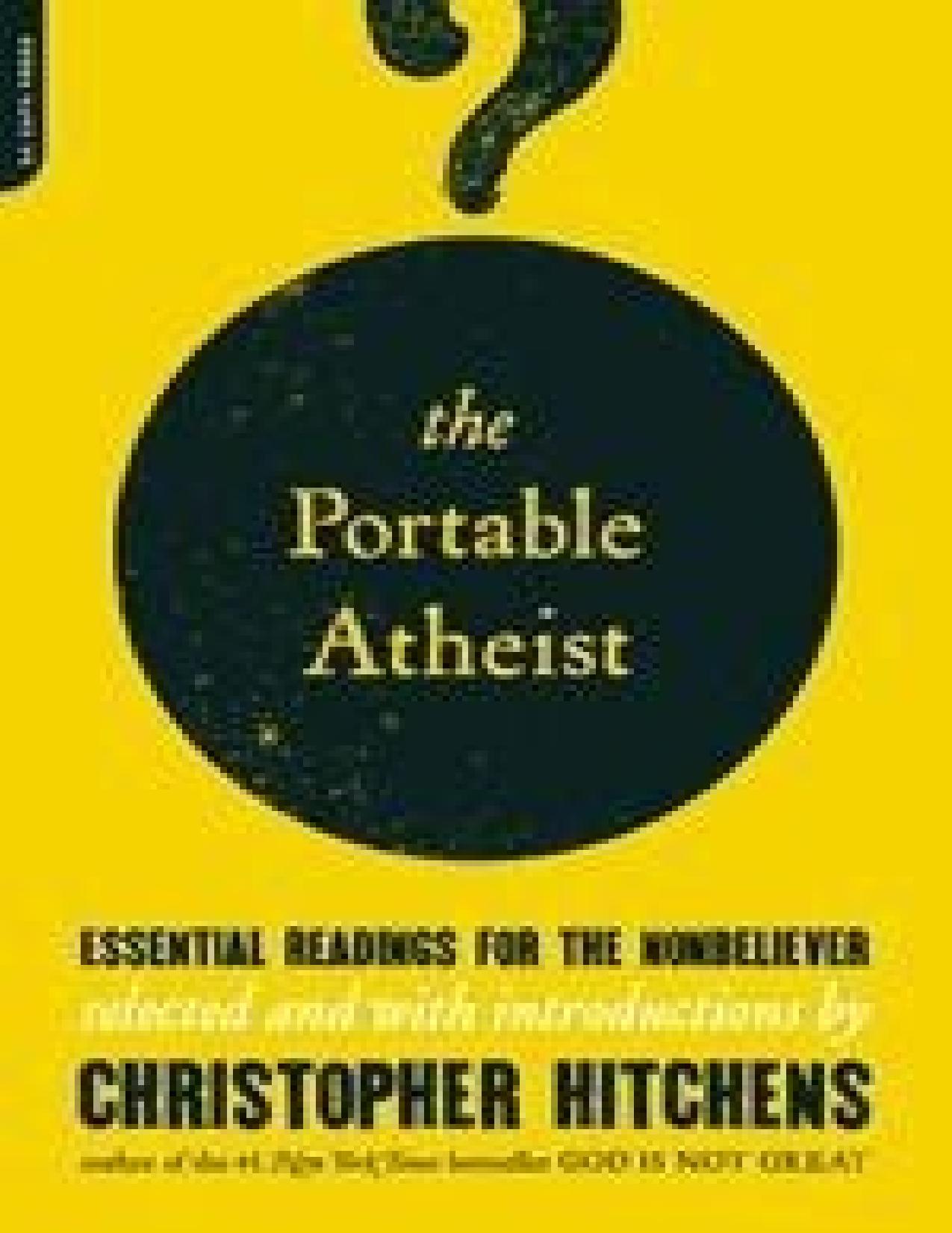The Portable Atheist: Essential Readings for the Nonbeliever by Christopher Hitchens

Author:Christopher Hitchens [Hitchens, Christopher]
Language: eng
Format: epub, mobi, pdf
Tags: General, Social Science, Religion, Philosophy, Sociology, Literary essays, Atheism, Agnosticism & atheism, Anthologies (non-poetry), Religion: general, Religion: Comparative, General & Reference, Religion - World Religions
ISBN: 9780306816086
Publisher: Da Capo
Published: 2007-11-05T06:00:00+00:00
31
Conclusions and Implications
From The Miracle of Theism: Arguments for and Against the Existence of God
J. L. MACKIE
For some reason, many of the arguments about Church and State, and about divine will versus natural selection, have taken place at Oxford University. If Shelley or Huxley had known that J. L. Mackie (of Shelley’s own college) would be intervening in this old dispute in the late twentieth century, they could have relaxed in the knowledge that a brilliant philosopher had laid waste to the enemy camp.
(a) The Challenge of Nihilism
We may approach our conclusion by considering Hans Küng’s massive work, Does God Exist?1 Subtitled “An Answer for Today,” this book not only brings together many lines of thought that bear upon this question, but also sets out to interpret our whole present moral and intellectual situation. It displays a fantastic wealth of learning; it is also extremely diffuse. Time and again after raising an issue Küng will slightly change the subject, and often when we need an argument he gives us a quotation, a report of the views of yet another thinker, or even a fragment of biography. I think he is also unduly concerned with contemporary relevance, and is liable to tell us that some statement or argument is out of date, when all that matters is whether it is true or false, sound or unsound. Nevertheless, as we shall find, there is a main connecting thread of argument, and his final answer, at least, is explicit(p. 702):
After the difficult passage through the history of the modern age from the time of Descartes and Pascal, Kant and Hegel, considering in detail the objections raised in the critique of religion by Feuerbach, Marx and Freud, seriously confronting Nietzsche’s nihilism, seeking the reason for our fundamental trust and the answer in trust in God, in comparing finally the alternatives of the Eastern religions, entering also into the question “Who is God?” and of the God of Israel and of Jesus Christ: after all this, it will be understood why the question “Does God exist?” can now be answered by a clear, convinced Yes, justifiable at the bar of critical reason.
However, the substance of his discussion is far less satisfactory. One crucial question is whether his final “Yes” is to the god of traditional theism or to some “replacement for God”; but the answer to this question is far from clear. For example, in his Interim Results II: Theses on secularity and historicity of God we find this (pp. 185–186):
God is not a supramundane being above the clouds, in the physical heaven. The naive, anthropomorphic idea is obsolete…For man’s being and action, this means that God is not an almighty, absolute ruler exercising unlimited power just as he chooses over world and man.
God is not an extramundane being, beyond the stars, in the metaphysical heaven. The rationalistic-deistic idea is obsolete…For man’s being and action, this means that God is not now—so to speak—a constitutionally reigning monarch who is bound, for his part, by a
Download
The Portable Atheist: Essential Readings for the Nonbeliever by Christopher Hitchens.mobi
The Portable Atheist: Essential Readings for the Nonbeliever by Christopher Hitchens.pdf
This site does not store any files on its server. We only index and link to content provided by other sites. Please contact the content providers to delete copyright contents if any and email us, we'll remove relevant links or contents immediately.
4 3 2 1: A Novel by Paul Auster(12396)
The handmaid's tale by Margaret Atwood(7770)
Giovanni's Room by James Baldwin(7350)
Big Magic: Creative Living Beyond Fear by Elizabeth Gilbert(5778)
Asking the Right Questions: A Guide to Critical Thinking by M. Neil Browne & Stuart M. Keeley(5778)
Ego Is the Enemy by Ryan Holiday(5453)
The Body: A Guide for Occupants by Bill Bryson(5100)
On Writing A Memoir of the Craft by Stephen King(4947)
Ken Follett - World without end by Ken Follett(4737)
Adulting by Kelly Williams Brown(4579)
Bluets by Maggie Nelson(4561)
Eat That Frog! by Brian Tracy(4543)
Guilty Pleasures by Laurell K Hamilton(4451)
The Poetry of Pablo Neruda by Pablo Neruda(4112)
Alive: The Story of the Andes Survivors by Piers Paul Read(4035)
White Noise - A Novel by Don DeLillo(4014)
Fingerprints of the Gods by Graham Hancock(4006)
The Book of Joy by Dalai Lama(3989)
The Bookshop by Penelope Fitzgerald(3855)
